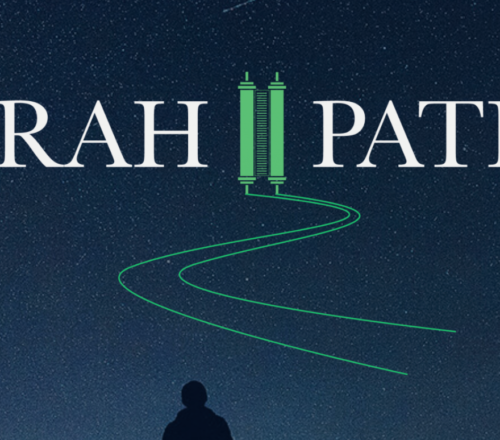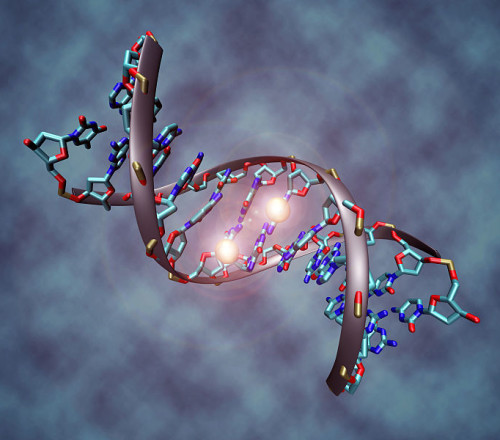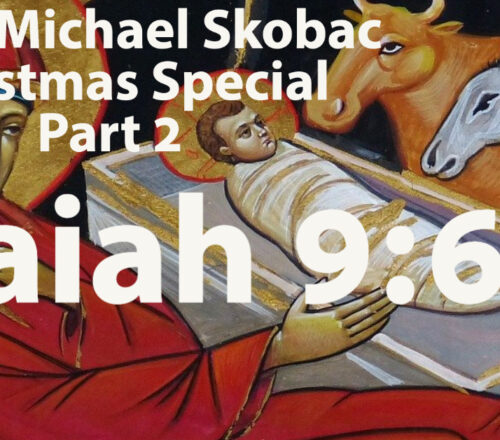Exploring Psalms – An Introduction & Chapter 1
Join Rabbi Michael Skobac and Jono as they begin a new and fascinating series investigating the Book of Psalms, chapter by chapter. Who composed the chapter? What is it about and what was happening in the life of the author at the time of the composition? How does it apply to us today? Also, what would Christianity have us believe about each Psalm and how does that deviate from the original intent? Listen for the answers of these questions and more!
Join Us On The Tanakh Tour Of Israel, November 2016
Listen to Rabbi Skobac on Israel On My Mind with Jason & Jono
[audio:https://truth2u.org/wp-content/uploads/Audio/Truth2U%20-%20Michael%20Skobac%20-%20Psalms%20-%20Intro%20and%20Chapter%201.mp3|titles=]




Hi there!
Great series! Again!
Interestingly enough, but I think Jesus also said something similar to what this Psalm says about rerouting or replanting things. I am not a supporter of Churches claims about Jesus and his so called messianic claims. But we have to admit that some things PRESCRIBED TO HIM are kind of wise. And he said something like – nobody can come to my father’s house unless he is born from above…
In my view it speaks about abandoning your old person and become a new one. After all Jesus seems to have been a very educated in scriptures. He was capable to read the book of Isaiah etc. How many people at that time were capable to read???
From http://pb.org/PBDocs/Psallo.html
The Greek word in question is the verb psallo. Controversy over this term also extends to the related noun psalmos.
All authorities seem to agree that the earliest meaning of the word, hundreds of years before the New Testament era, was to “pluck, twitch or twang,” as in “pluck” a hair, or “twang” a bowstring, or “twitch” a carpenter’s line. At this early stage, the word had no special association with musical instruments. Then, as Roberston explains, the word evolved so that its meaning became to touch or play the strings of a musical instrument. Afterward, it meant to sing in accompaniment with such an instrument. But yet later, in the common Greek of the New Testament period, Robertson and other authorities affirm that the idea of an instrument had been dropped, so that the word simply meant to sing a hymn or to sing praises. The commonalty in all definitions is the idea of vibrating a string or cord. Since the human voice is also created by such vibration, it is possible that the meaning of the term was transferred to the voice along these lines. Whatever the explanation of its etymology, there is absolutely no doubt that the term has experienced the indicated changes.
Joseph H. Thayer, generally thought to be unsurpassed among New Testament Greek lexicographers, states that in the New Testament psallo means “to sing a hymn, to celebrate the praises of God in song.” Hence, Thayer and Robertson, both eminent authorities, agree that psallo does not suggest musical accompaniment in the New Testament.
Hi, This is what I found online about the word Psalm
http://www.wordcentral.com/cgi-bin/student?psalm
WordCentral.com
Etymology: Old English psealm “psalm,” from Latin psalmus (same meaning), from Greek psalmos “psalm,” literally, “twanging of a harp,” from psallein “to pluck, …
Thank you Mr. Jono for giving people the opportunity to hear from Rabbi Skobac. Though I have read psalms 1 and other psalms many times by myself, hearing from people like him really help us look at things from a higher and better point of view.
God bless you and Rabbi Skobac.